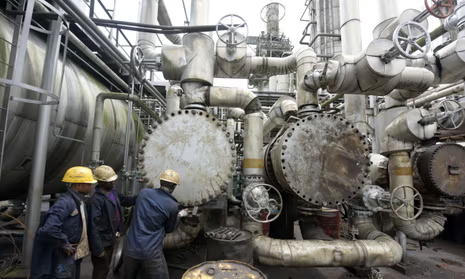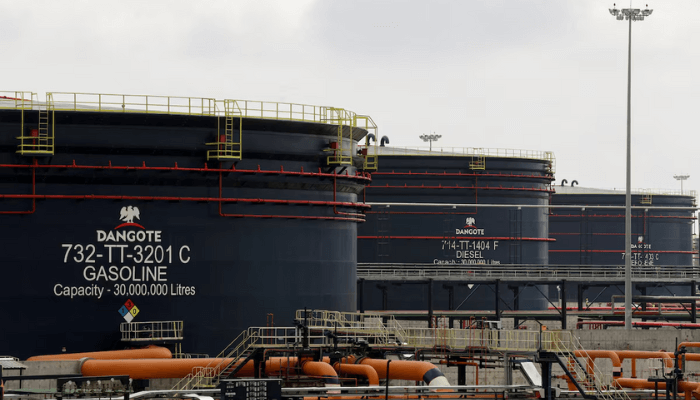Nigeria's oil revenue is at risk due to the stalling of major projects totaling 905,000 barrels per day (b/d). This development threatens the country's economic stability, as oil exports constitute a significant portion of government income.
In recent years, Nigeria has faced challenges in its oil sector, including declining production levels. For instance, in May 2024, crude oil production decreased to 1.25 million b/d from 1.28 million b/d in April, marking the second-lowest production level that year. This decline has made it difficult for Nigeria to meet its OPEC production quota and budget benchmarks, potentially impacting national revenue.
The stalling of these significant projects exacerbates existing issues such as oil theft, vandalism, and underinvestment. These challenges have led to reduced output and deterred potential investors, further hindering the growth of Nigeria's oil industry.
Efforts to revitalize the sector include initiatives like the Dangote oil refinery near Lagos, which aims to process 650,000 b/d. However, securing consistent crude supply remains a challenge, raising concerns about the refinery's potential impact on reducing Nigeria's reliance on imported refined petroleum.
To mitigate these risks, experts recommend investing in infrastructure, enhancing security measures, and promoting gas-based industries. Additionally, addressing regulatory inconsistencies and fostering a stable business environment are crucial to attract and retain investors in Nigeria's oil sector.
Without decisive action to overcome these challenges, Nigeria's oil revenue may continue to dwindle, posing significant threats to the nation's economic well-being.

.jpg)








